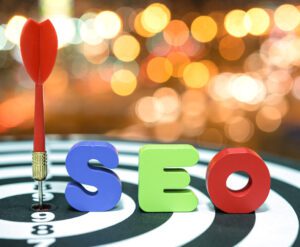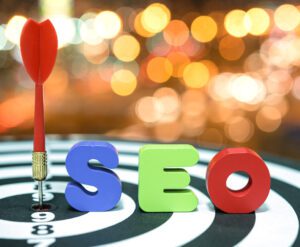In today’s digital world, businesses are constantly trying to keep up with the rapidly evolving digital environment by adapting and finding new ways to generate meaningful connections with their customers and provide exceptional service. One practical approach with significant potential is using AI and machine learning to offer personalized customer experiences. AI-based customization involves collecting and analyzing extensive customer data, including browsing and purchasing habits, social media interactions, and demographic information. This data is used to understand each customer’s unique preferences and needs. Businesses can use data to make decisions, tailor their marketing strategies, and increase their customer base. The significance of Artificial Intelligence (AI) in digital marketing cannot be overstated as its relevance continues to grow. Businesses must embrace the latest technology in today’s rapidly changing digital landscape to stay ahead of competitors.
By leveraging advanced algorithms and machine learning, businesses can create tailored experiences that resonate with individual preferences. From e-commerce platforms to streaming services, the applications of AI-powered personalization are diverse and continually evolving. However, as businesses embrace this technology, they must do so responsibly, addressing privacy concerns and avoiding the pitfalls of algorithmic bias. The future holds exciting possibilities as AI continues to integrate with emerging technologies, opening new avenues for personalized and immersive customer experiences.
In this article, we shall discuss the latest developments in AI-powered personalization, such as improvements in chatbot technology using GPT models and machine learning algorithms in email marketing. It will also explore how businesses can enhance the customer experience by combining human and AI efforts, testing new processes through traditional growth team experimentation, and simplifying interactions to create a positive user experience.
Why use AI in a Digital Marketing Company
Artificial Intelligence (AI) is transforming the way digital marketing works. It uses machine learning and natural language processing technology to analyze large amounts of data and create personalized marketing campaigns. This helps marketers understand their target audience better and create campaigns that engage and convert users. AI also automates tasks like data analysis, reporting, and customer service, allowing marketers to focus on planning and creativity. AI can also improve websites and search engines by providing tailored experiences for users. AI personalization is transforming how businesses interact with customers, and marketers need to learn how to use these tools effectively as AI technology continues to advance.
AI personalization techniques are revolutionizing how businesses interact with customers by providing personalized experiences based on individual preferences and behavior. Marketers must keep up with the trend as AI advances and learn how to use these sophisticated tools effectively.
The Evolution of Personalization
Personalization is not a new concept. It is one of the most transformative advancements in pursuing AI-powered personalization. This cutting-edge technology is reshaping customer engagement, providing businesses with unprecedented opportunities to create tailored and meaningful interactions. From the early days of handwritten letters to the more recent era of targeted advertising, businesses have always sought to tailor their offerings to individual preferences. However, the rise of artificial intelligence has taken personalization to new heights. Traditional segmentation and targeting methods have given way to sophisticated algorithms that analyze vast amounts of data to understand and predict individual behavior.
Understanding Customer Behavior
AI-powered personalization leverages advanced algorithms and machine learning to analyze vast customer data. AI mines data from browsing history and purchase patterns to preferences and demographics to uncover valuable insights. This wealth of information allows businesses to understand their customers granularly, enabling personalized experiences that resonate with individual preferences.
Customer interactions across various touchpoints, from website visits to social media engagement, generate a wealth of information. AI algorithms sift through this data to identify patterns, preferences, and trends. By understanding customer behavior, businesses can create a comprehensive profile for each individual, allowing for highly targeted and personalized experiences.
Enhancing Customer Experiences
The heart of AI-powered personalization lies in its ability to enhance customer experiences. Imagine entering a website, and instead of generic content, you are greeted with products and recommendations tailored to your preferences. This level of customization not only makes the customer feel valued but also streamlines the decision-making process. AI algorithms can predict a customer’s likely interest based on their past behavior, creating a seamless and enjoyable browsing experience.
The era of generic, one-size-fits-all interactions is becoming obsolete. AI-powered personalization enables businesses to deliver highly targeted content, product recommendations, and promotional offers to customers. By understanding each customer’s unique needs and preferences, companies can create a more engaging and satisfying experience, fostering customer loyalty and satisfaction. E-commerce platforms have been quick to adopt AI-powered personalization. Amazon, for example, uses AI algorithms to analyze past purchases, search history, and even the time spent viewing a particular product.
Imagine receiving recommendations for products that align perfectly with your taste or offering exclusive promotions on items you’ve shown interest in. AI enables businesses to turn these scenarios into reality, making customers feel seen and understood.
Personalization beyond Products
While product recommendations are a common application of AI-powered personalization, their scope goes beyond suggesting items for purchase. Content personalization is another area where AI shines. Streaming services like Netflix and music platforms like Spotify use AI to analyze viewing and listening habits, offering personalized content recommendations. This keeps customers engaged and fosters loyalty by catering to their unique tastes.
AI-powered personalization is also making waves in the realm of customer service. Chatbots with natural language processing capabilities can provide personalized assistance in understanding and addressing customer queries with human-like interaction. This not only saves time but also contributes to a positive customer experience.
Tailoring Content for Maximum Impact
Content is king, and with AI-powered personalization, businesses can ensure that each customer is exposed to the most relevant and compelling content. Whether email campaigns, website interfaces, or social media interactions, AI algorithms can dynamically adjust content based on user behavior, ensuring that customers are presented with information that captures their interest.
This level of personalization not only enhances the overall customer experience but also increases the effectiveness of marketing efforts. Customers are more likely to engage with content that speaks directly to their interests, leading to higher conversion rates and improved ROI for businesses.
Challenges and Considerations
While the benefits of AI-powered personalization are evident, businesses must navigate challenges and ethical considerations. Privacy concerns loom large as the collection and use of personal data raise questions about consent and security. Striking a balance between customization and privacy is crucial to maintaining customer trust.
Additionally, there is the risk of over-reliance on algorithms, potentially leading to filter bubbles where individuals are only exposed to content and products that align with their preferences. Businesses must actively ensure diversity in recommendations, avoiding reinforcing narrow perspectives.
AI-powered Personalization in Digital Marketing Firms – Trends and Benefits
Today, customers need experiences that are personalized to their individual preferences. Digital marketing agencies can use customer data and analytics to create content and recommendations tailored to each user. By 2024, we can expect to see even more personalized experiences, going beyond just demographics to cater to each individual. This will affect marketing emails, messages, product recommendations, and website content. Automation and AI will help marketers improve personalization, leading to better engagement and higher conversion rates.
Netflix has achieved a better user experience and higher engagement and retention rates by leveraging artificial intelligence (AI) as a tool to suggest shows based on viewer preferences. Similarly, Amazon uses AI technology to make personalized product recommendations based on a consumer’s purchasing history, which has enhanced overall sales.
Digital marketers can gain an advantage over competitors by using AI to personalize and optimize their campaigns. Businesses can improve their marketing strategies by analyzing customer behavior and purchase history. Customized promotions can also help to attract and retain more engaged customers, leading to increased revenue.
Here, we will explore how artificial intelligence can assist in reviving community-based events and ensuring efficient organization and execution.
1. SEO – Expanding Your Reach Online
By utilizing AI technology, businesses can better understand their target audience and establish stronger connections. Employing AI-based SEO tools like Google’s RankBrain can help businesses improve their search engine rankings, attracting more visitors who may become potential customers. Predictive analytics also allows companies like Airbnb to anticipate demand for their properties and set prices accordingly, leading to increased revenue and higher customer satisfaction.
Expanding your online presence beyond just search engine optimization (SEO) is crucial to remain competitive in today’s fast-evolving digital environment. Utilizing other platforms like social media and content-sharing sites is an effective way to promote and highlight your products and services. This broader digital footprint can help you reach a wider audience and stay ahead in the online marketplace.
Email marketing campaigns, social media advertising, and influencer partnerships are all effective strategies to consider in your industry. These methods allow digital marketing companies to target specific groups with tailored messages and showcase the latest deals or promotions. AI-driven analytics can capture and interpret customer behavior data, helping businesses identify patterns for more targeted marketing campaigns. By incorporating natural language processing and machine learning, businesses can have more personalized customer conversations, ultimately increasing customer engagement.
2. Video Marketing to promote products and services
Video marketing has become increasingly popular in recent years and is expected to continue growing in 2023. Platforms like YouTube, TikTok, and Instagram Reels have made video content the preferred medium for information and entertainment. Short-form videos, live streaming, and interactive experiences are becoming essential tools for marketers to engage with their target audience effectively. Companies that invest in high-quality video production, storytelling, and optimization for different platforms will see increased brand awareness and user engagement. Creating engaging content, optimizing video titles and descriptions, and including calls-to-action are some tips for successful video marketing.
YouTube marketing is a great way to connect with new people and offer valuable content that makes you stand out from your competitors. Using artificial intelligence in content marketing can have a significant impact, allowing businesses to tailor content to match user behavior and preferences. This leads to higher engagement and conversions as users get content that meets their needs.
3. Social Media for Outreach
AI is transforming social media marketing with its potential to analyze consumer behaviors and preferences. Using AI-driven tools, businesses can create marketing campaigns tailored to their target audience, determine the best times to post content, identify the content most likely to grab users’ attention and suggest the most relevant hashtags to use.
4. Chatbots in Digital Marketing Agencies
Chatbots are becoming increasingly common in digital marketing, using the ability of artificial intelligence (AI). These computer programs can understand human language and communicate with users, answering questions and helping them quickly and efficiently. This allows human customer service staff to focus on more complex issues. Additionally, AI-powered chatbots can analyze customer inquiries and provide customized responses based on their habits and preferences. This personalized customer service can result in increased customer satisfaction and stronger loyalty.
Chatbots have been significantly improved by using advanced language models like GPT-3. They can now understand language in context and provide more accurate responses, making them an essential tool for businesses looking to enhance their customer service. For instance, a business could implement a chatbot powered by Watson Assistant on its website, which uses GPT-3’s natural language processing to respond to customer queries effectively.
5. Email-Marketing
AI-powered personalization is a popular strategy for email marketing campaigns. By using data from recipients, such as their browsing history and past purchases, AI algorithms can create content specifically tailored to each subscriber. HubSpot Email Marketing Software is a popular tool allowing marketers to create emails based on data collected over time on customer behavior. Businesses can use machine learning algorithms to segment customers based on demographics and online behavior to ensure they send the most relevant content possible. AI can also help marketers discover the most compelling subject lines and email layouts through user engagement metrics and can generate personalized copy for emails. Incorporating AI-driven personalization into a marketing strategy can improve the customer experience and increase conversion rates. Businesses can build strong customer relationships by providing tailored content through various touchpoints. Companies must stay competitive by utilizing cutting-edge technology, such as AI, for personalization.
6. Event Management to Boost Brand Awareness
As we approach 2024, artificial intelligence (AI) is expected to significantly impact bringing back in-person events, especially those intended to build communities. By incorporating AI technology, event planning, and management will become more efficient, allowing companies to increase their brand promotion successfully.
Artificial Intelligence (AI) can potentially bring about significant improvements in the event planning process. By automating tasks such as scheduling meetings and allocating resources based on real-time insights, AI can save time and facilitate better coordination among team members. Additionally, AI algorithms can analyze historical data to determine the most suitable venues for events, helping organizers make informed decisions and avoid potential issues. AI-driven tools like Eventbrite can also estimate expected attendance numbers, allowing organizers to allocate resources more effectively. Furthermore, AI-powered sentiment analysis tools can measure attendee satisfaction during events, helping organizers promptly address issues and improve the overall experience.
7. Voice Search and Virtual Assistant
Businesses need to stay updated on the latest advancements in AI and understand how these changes can impact user behavior and preferences. For example, there is a growing trend towards voice search and virtual assistants because they are easy and efficient. This could lead to a decrease in traditional text-based searches in the future. In today’s world, content needs to be optimized for voice search as devices like Google Home and Amazon Echo become more popular. Focusing on natural language queries and longer keywords instead of short phrases is essential to optimize voice search.
Virtual assistants such as Alexa, Siri, and Cortana have drastically changed how people search for online content. Web pages must be easily navigable using conversational interfaces to stay relevant in this evolving landscape. Companies should adapt their SEO practices and explore other digital marketing strategies beyond traditional SEO to keep up with technological advancements.
The Future of AI-Powered Personalization
As technology advances, the future of AI-powered personalization holds even more tremendous promise. Integrating machine learning and AI into augmented reality (AR) and virtual reality (VR) experiences will take personalization to immersive levels. Imagine a retail environment where virtual assistants guide customers through personalized shopping experiences or a virtual fitting room that recommends clothing based on individual style preferences.
Moreover, combining AI and the Internet of Things (IoT) will enable real-time personalization. Smart devices, from refrigerators to wearable gadgets, will provide continuous data streams, allowing businesses to adapt and personalize offerings in the moment. For example, a fitness app could adjust workout recommendations based on real-time data from a user’s smartwatch.
If you want to improve your marketing strategy, it is crucial to incorporate AI-based personalization techniques. These methods not only improve the customer experience but also increase conversion rates. By providing personalized content that meets the audience’s specific needs, companies can effectively communicate with their target market and build strong connections based on understanding and relevance. AI Personalization Techniques are advancing rapidly, and businesses must adopt advanced technologies like AI to personalize their marketing strategies to stay ahead of the competition. However, it is vital to balance using AI-generated content and human creativity while anticipating changes in user behavior due to AI advancements. Businesses must continue experimenting with new processes involving AI technologies and human input to enhance the customer experience.
If you are interested in incorporating AI personalization techniques into your business strategy, you can contact the specialists at XXXXXXXXXXX. Our team of experts is available to help you navigate the complex world of AI personalization and support your business in its growth.








